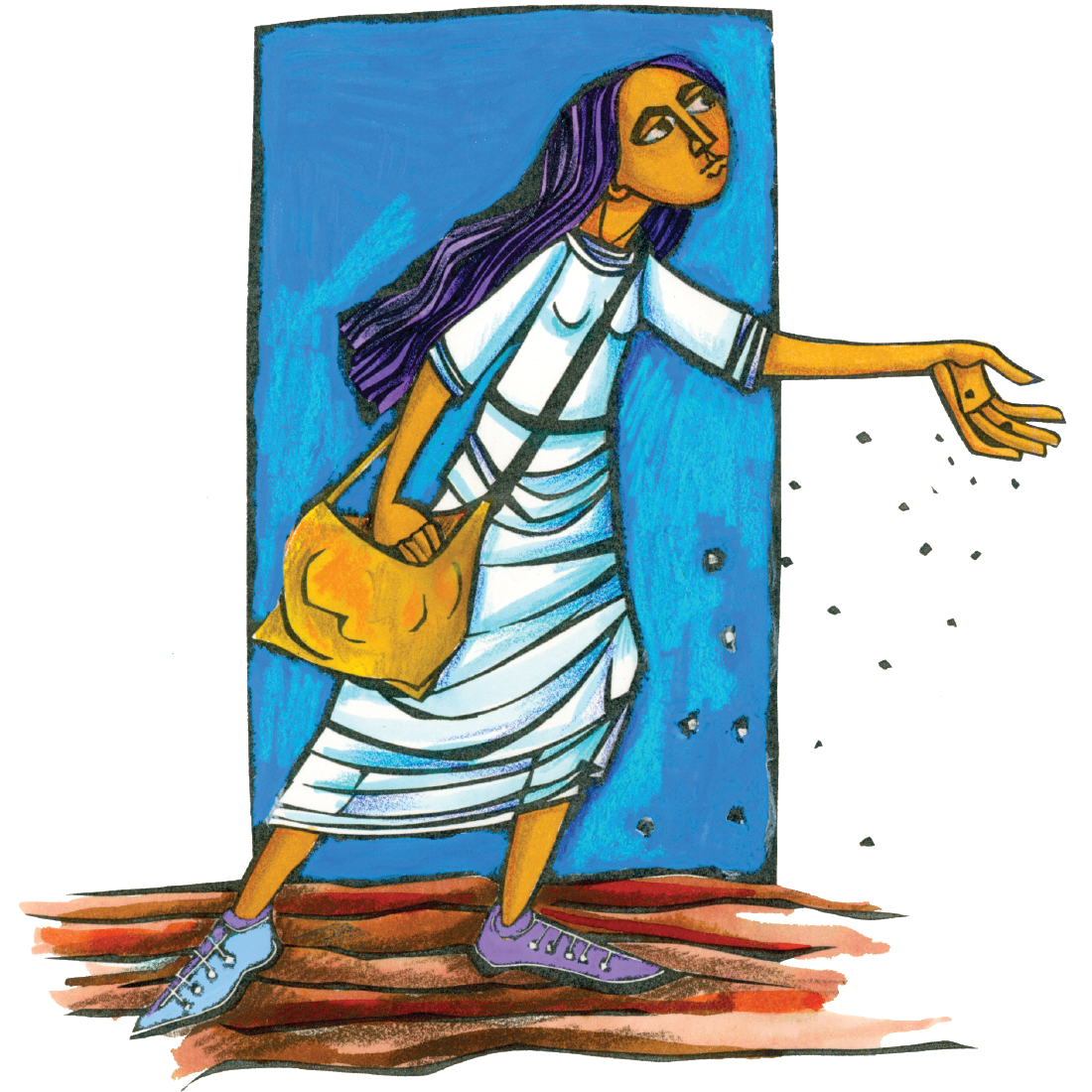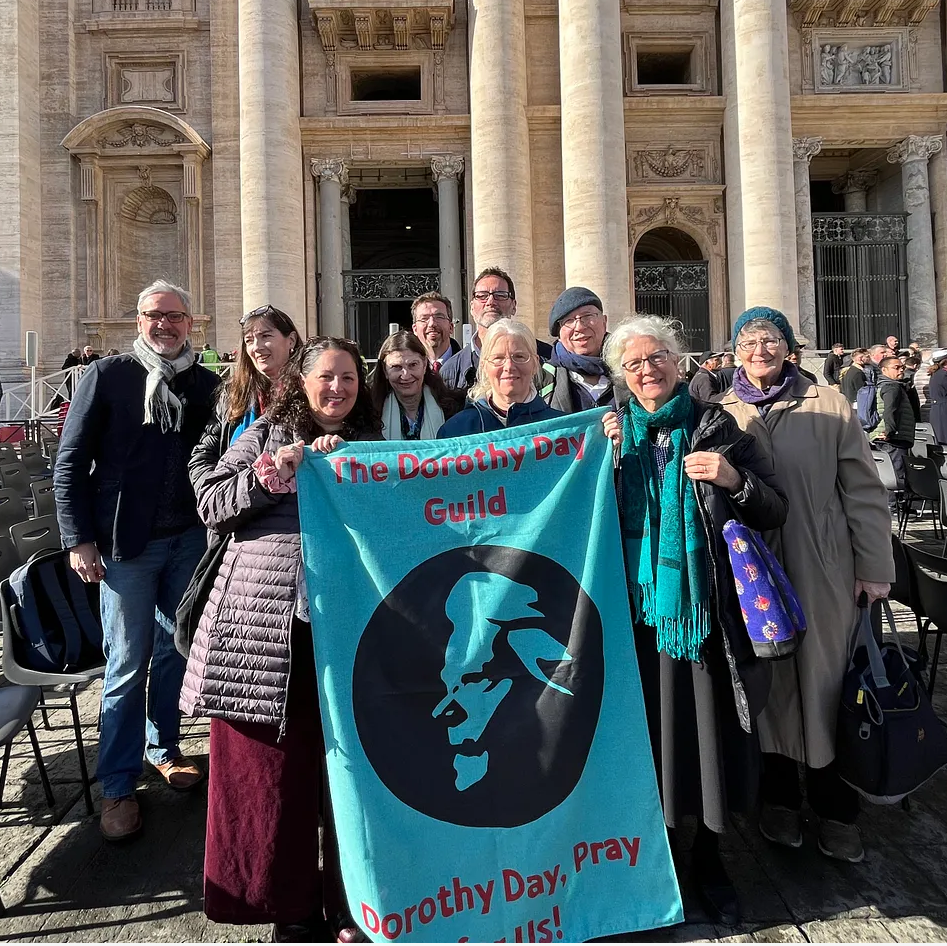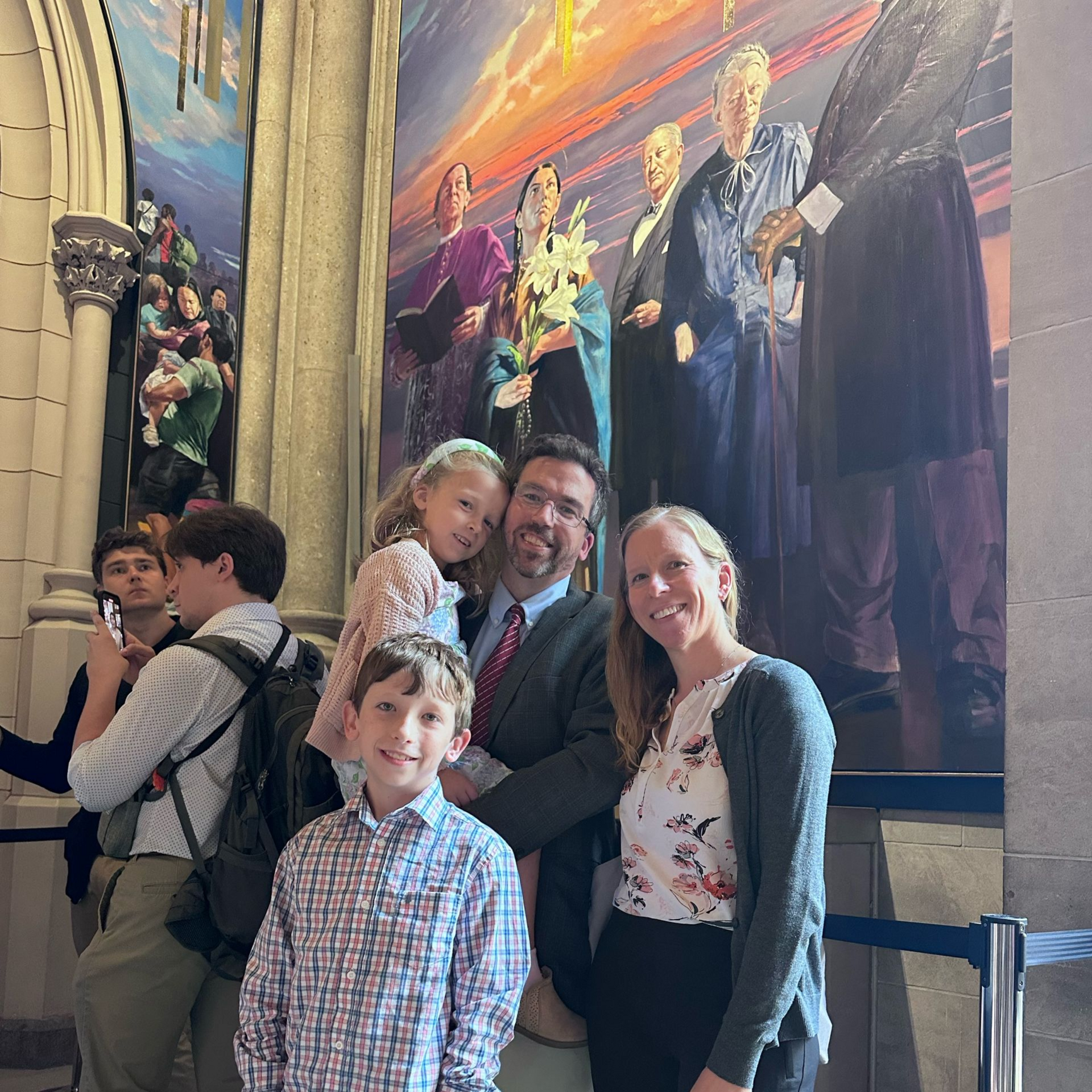“From its beginnings the Catholic Worker has been a place of refuge for the most desperate, for the outcast of outcasts. For people of privilege, it has offered a unique opportunity to move, sometimes awkwardly, into the world of the poor. Not for the novelty of the experience but as Dorothy seemed to know, that by seeking the Christ in the outcast we would also contact the Christ within us.”
In Las Vegas, the Catholic Worker started in 1986 by serving ice water in the heat of summer out of the back of a VW station wagon. Soon our water recipients suggested a location to serve coffee and donuts to day laborers lining the street by the freeway. The “coffee line” evolved into a hearty morning meal still served today three mornings a week in the same general area.
While the food line meals are prepared in the kitchen of our Hospitality House, we set up and serve outside on the street a few blocks away from the house. We have never been able to acquire a building in the neighborhood for inside serving. Being “buildingless” and serving outside forces us to at least briefly be exposed to the precarity of being homeless. As we approach with our vehicles full of food, we cannot help seeing the way homeless people attempt to negotiate a place of refuge. Tarps and boards attached to chain link fences make for flimsy shelter. The absence of bathrooms or trash service forces people to sleep in the squalor of debris. These harsh circumstances are worsened by the extreme weather conditions: cold, wind, heat, and even rain.
Most mornings, despite the challenges, they wait patiently in line for the Catholic Worker volunteers to arrive. In contrast to their dreary and difficult circumstances, we are met by resilience and grace. We are humbled by the smiles and expressions of gratitude that greet us as we hand out simple meal bags.
While I only endure these conditions for the brief time we are serving, there are days when a particular image haunts me. In the chill of winter mornings, the cold can linger in my bones even after being indoors for a while. As witnesses to the scene, our hearts cannot avoid being awakened to the human cost of disparity and injustice. If new volunteers have any judgment or hardness of heart it is softened by the morning’s end.
I remember hearing Dorothy speak during an interview with Bill Moyers recorded in the 1970s. She spoke in essence about the tragic irony of New York, one of the wealthiest cities in the world, lacking in its capacity to care for the poorest of its citizens. Desperate individuals, suffering with extreme cases of mental and medical distress would often be brought by the authorities to the door of the New York Catholic Worker.
From its beginnings the Catholic Worker has been a place of refuge for the most desperate, for the outcast of outcasts. For people of privilege, it has offered a unique opportunity to move, sometimes awkwardly, into the world of the poor. Not for the novelty of the experience but as Dorothy seemed to know, that by seeking the Christ in the outcast we would also contact the Christ within us. This contact was essential in cultivating our capacity to work towards the promise of a beloved community. We would find the source of the great love we had to share with a broken world.
In Las Vegas this sharing happens in our Houses of Hospitality, food serving and mobile shower project. People come to us, vulnerable and in need. With the model of the Gospel, we are given a way to respond. We give food to the hungry, shelter to the homeless and clean clothing to those without.
Meeting vulnerability and struggle with mercy and compassion is prompted by a faith in the power of Christ’s love. And while it is easy to grow weary and want to avoid the reality of suffering just outside my front gate, this reality ultimately takes hold of my heart, informs my decisions and actions. It motivates a desire to create a just and compassionate world. I am convinced that my desire to do so would be weak and forgotten without the gift of solidarity formed from a sustained connection to the marginalized present in my life at the Catholic Worker.
-
Our deep thanks to
Bro. Martin Erspamer, OSB, for the use of his iconic images (preceding columns for “Good Talk,” “Breaking Bread,” “Sowing Seeds,” “Signs of Holiness”)
-






